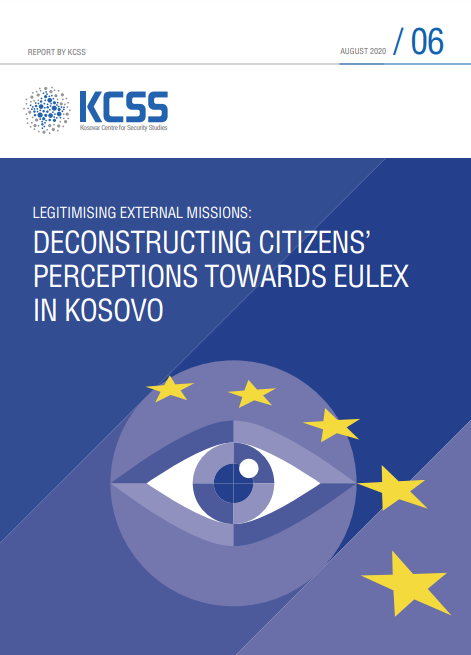31/08/2020

Kosovar Centre for Security Studies (KCSS)
Kosovar Center for Security Studies (KCSS)
Emma- Louise Rose
On the EU’s part, EULEX has been its largest ever civilian mission in an attempt to strengthen what is considered to be the EU’s weakest spot: foreign and security policy. Despite its lengthy presence, EULEX has not gained the trust of the citizens of Kosovo. The Kosovo Security Barometer (KSB) conducted annually by KCSS has been measuring the amount of trust that Kosovo citizens have in the mission and have found the number to be consistently low when compared to other local and international institutions. The lack of trust, and therefore support, from the public seems to stem from many different areas particularly EU/EULEX’s neutrality on the issue of Kosovo independence (due to lack of recognition by 5 member states) and a failure to carry out its mission. Based on the quantitative measurement of KSB, the lack of trust has remained fairly stable over the years, with all of the given statistics being within 15% of each other (between 16% and 31%), the lowest amount of trust was recorded in 2015. This brought the legitimacy and public support for the mission into question.
This paper has examined the years that the KSB have measured public trust in the mission and the corresponding events concerning the mission that happened in that year and has analysed the reasons given for the lack of trust both in various editions of the KSB and other sources such as academic journals, studies conducted by other researchers and first person reports of people who have been involved in the mission. The main findings were that the public has never had a large amount of trust in EULEX, but still sees the EU as a positive aspect as it wishes to become a member state. There are also regional and ethnic differences in levels of trust, which can be explained by issues of sovereignty and EULEX activity in different areas of Kosovo. Overall, this paper questions whether EULEX still has a mandate to remain in Kosovo given that gaining the trust of both Kosovo-Albanians and Kosovo-Serbs seems an almost impossible task, and the fact it has done little to improve the situation in Kosovo despite their public narrative claiming otherwise.